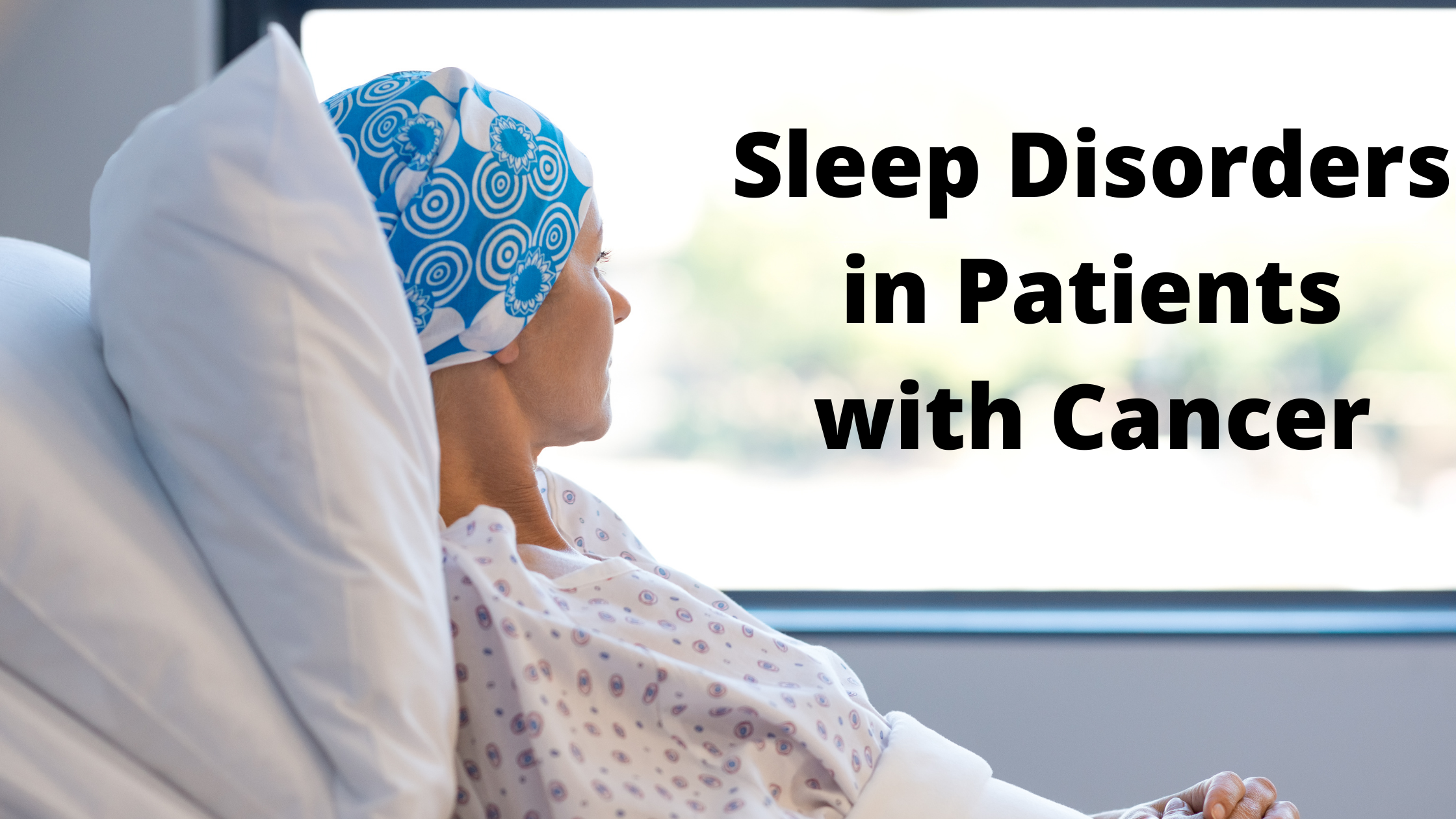
Patients with cancer have many physiological changes that are life-altering. One of those changes is sleep. Cancer can have significant changes on patients' ability to get an adequate amount of rest, for a variety of reasons. Continue reading to find out how cancer can impact sleep and what the best ways are to overcome those challenges.
Why sleep is important in cancer
Getting enough sleep in patients without cancer is important for physical and mental health. This is even more important in patients with cancer. They may already be struggling physically - feeling more tired than normal, needing extra repair, an immune boost, and management of blood sugar, blood pressure, and weight.
All of those physiological processes are already abnormally affected by cancer. A lack of sleep will just exacerbate those issues. Depression and anxiety are also impacted by sleep deprivation and cancer alike. Dealing with the diagnosis, treatments, and the uncertainty of one's health can lead to increased issues of anxiety and depression. They both negatively affect the other and can worsen the effects of the other.
Sleep disorders in cancer patients
In patients with cancer, certain sleep disorders are more prevalent. About half of patients with cancer have trouble sleeping. The most common disorders are insomnia and abnormal sleep-wake cycle.
Insomnia is the inability to go to sleep for either no reason or due to some other cause. These are primary insomnia and secondary insomnia, respectively. Sleep-wake cycle is the way your body manages your sleeping schedule. It is managed by a part of your brain called the suprachiasmatic nucleus (SCN). It controls the release of melatonin and cortisol, which control sleepiness and wakefulness, respectively.
There are many reasons that patients with cancer have trouble sleeping:
- physical changes from cancer or surgery
- side effects of drugs or other treatments
- being in the hospital
- stress from cancer
- health problems unrelated to cancer
Tumors and sleep
Tumors are abnormal growths that take place and cause cancer. These abnormal growths are masses of cells that aren't supposed to be there. They can be benign, meaning they cause no problems, or malignant, meaning they invade other organs, blood vessels, lymph nodes, etc., and can spread to other parts of the body and continue to grow.
These tumors can cause trouble sleeping. They can lean on other structures and induce pressure changes, which can be uncomfortable while lying down. They can also cause gastrointestinal or bladder problems - meaning you may be getting up in the middle of the night to use the bathroom or vomit. Tumors can also lead to fever, pain, cough, trouble breathing, and severe itching, all of which are very disruptive to sleep efforts.
Drugs and sleep
Common drugs that are used to treat cancer or manage the symptoms can affect normal sleep patterns. How well a patient with cancer sleeps can be affected by
- hormone therapy
- corticosteroids
- sedatives or tranquilizers
- antidepressants
- anticonvulsants
Long-term use of any of these drugs may cause insomnia. Stopping or decreasing the use of certain drugs can also impact normal sleep. There are also side effects of these drugs that can affect the sleep-wake cycle.
Pain, anxiety, night sweats or hot flushes, gastrointestinal problems, bladder, or breathing can all be adverse effects of treatments. They all can lead to some serious sleep disruptions.
Hospital and sleep
Patients with cancer who must stay in the hospital may experience many disruptions. The hospital is not the place for the best night of sleep. Other patients can be very disruptive throughout the night, especially if there are emergencies, codes, and people rushing around.
There are also early morning disruptions from phlebotomy, nurses, medical students, and physicians who are all checking vital signs and progressions. Also, the beds and pillows, as well as the room temperature, can make the sleeping environment very comfortable.
Diagnosis of sleep disorders
If you think you have a sleeping disorder, diagnosing it is a multi-step process. Your physician will take a history and physical exam to determine if the root of your sleeping disorders is due to your side effects medications, emotional effects, diet, or exercise. If they are unable to find the root of the issue, then they may need to do further studies.
A polysomnogram may be used to diagnose sleep disorders. Polysomnograms, or sleep studies, can record brain wave changes, eye movements, breathing rate, blood pressure, heart rate, and electrical activity of the heart and other muscles.
Treatment of sleep disorders
Treatment of sleep disorders for individuals with cancer involves treating or providing supportive care for the side effects of cancer or cancer treatment. Sleep disorders that occur with cancer-related fatigue may be related. Sleep disorders that are caused by adverse effects of cancer or cancer treatment may be helped by relieving the symptoms of those side effects. It's important to talk with your about your sleep problems with your family and health care team so you all can work together.
Therapy, specifically Cognitive behavioral therapy (CBT), can help reduce feelings of anxiety or depression by identifying the misalignment between your thoughts and behaviors.
Sleep is a behavior, so it's important to establish good habits. A comfortable bed and bedroom can really help improve sleep. Regular bowel and bladder habits, as well as diet and exercise, are all behavioral adjustments that you can make to improve your sleep.
If you have cancer, or someone you know, and are having extreme trouble going to sleep, then your sleep disorders may be deeply rooted, then it may be time to reach out to a sleep health professional. Please click the orange button below to talk with a sleep health professional.
https://www.cancer.gov/about-cancer/treatment/side-effects/sleep-disorders-pdq#:~:text=As%20many%20as%20half%20of,by%20the%20cancer%20or%20surgery.

